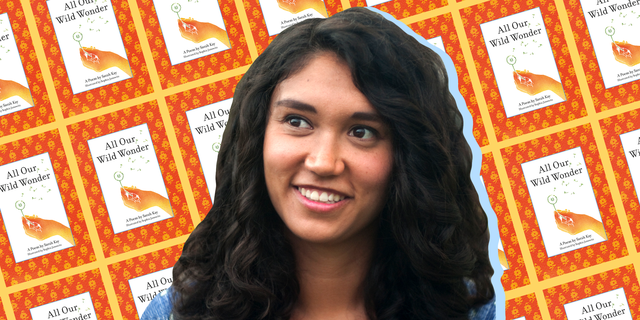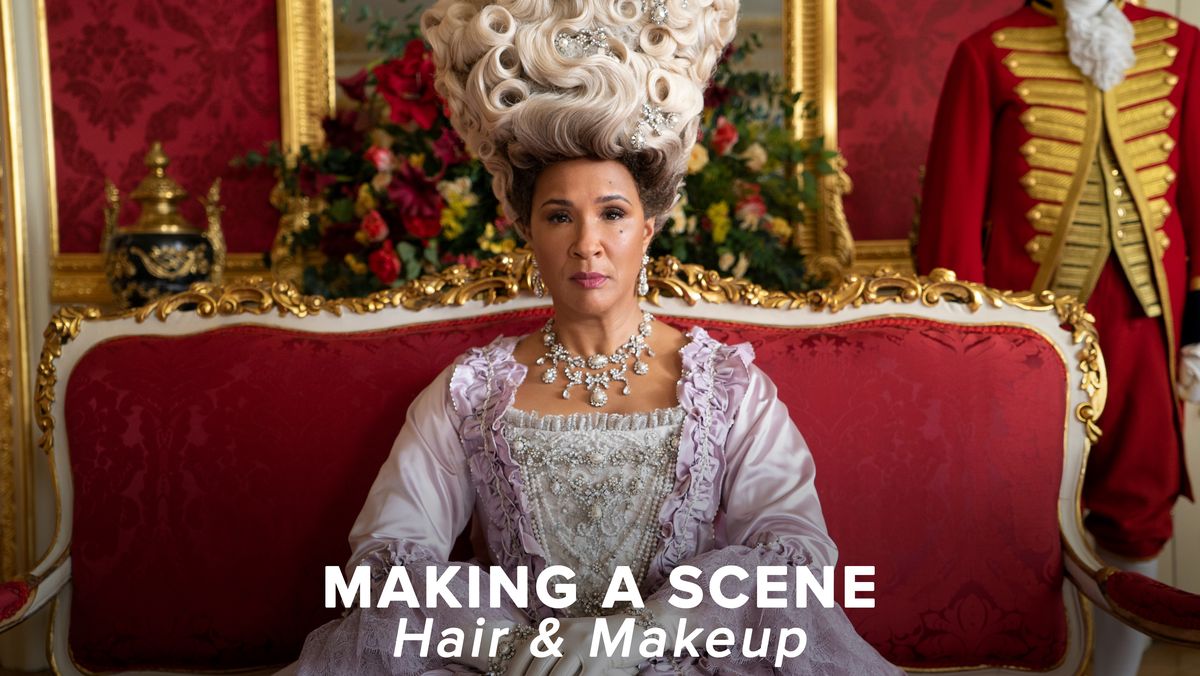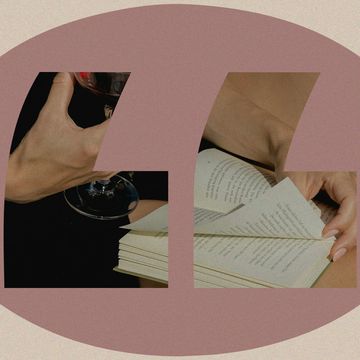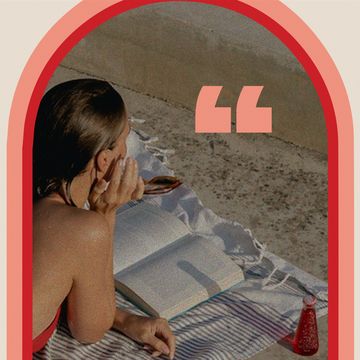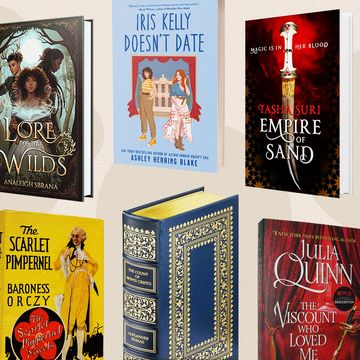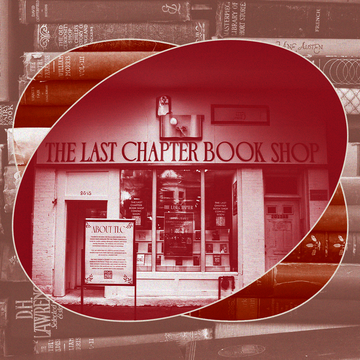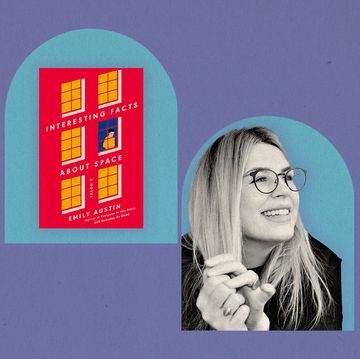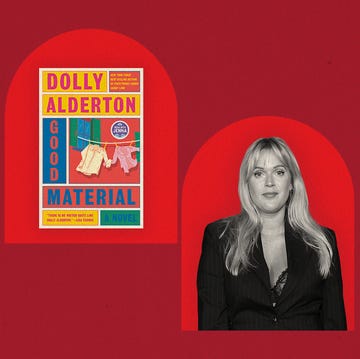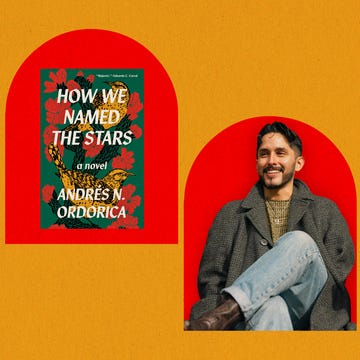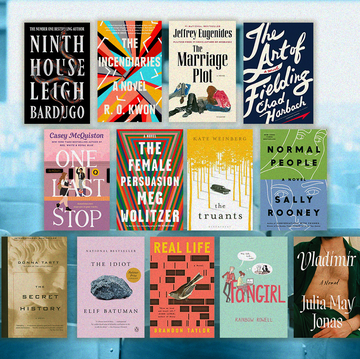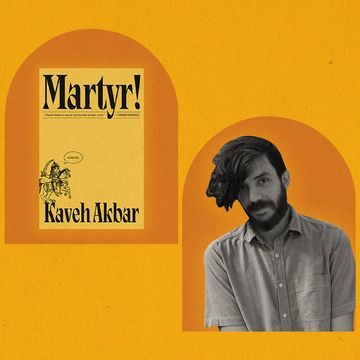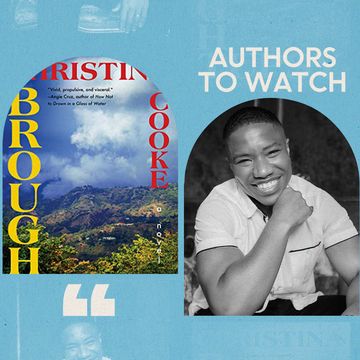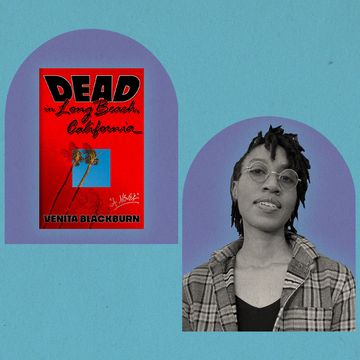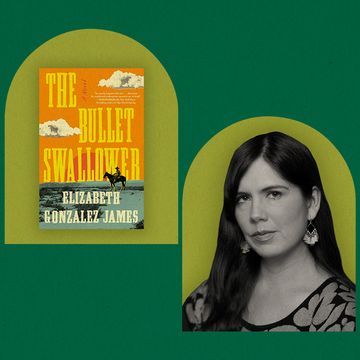Sarah Kay discovered her wild wonder at a young age.
At 14, she performed in her first poetry slam. At 16, she founded Project VOICE, an educational group "dedicated to promoting empowerment, improving literacy, and encouraging empathy and creative collaboration in classrooms and communities around the world" through spoken word performances and workshops.
Since then, Kay has performed in poetry slams around the world, given two ridiculously inspiring TED Talks (the first of which, "If I should have a daughter...," went massively viral in 2011), and written multiple books of poetry. In other words, she has dedicated her life to teaching others how to find the wild wonder she learned from a young age — and now, Kay has written a gorgeous ode to the woman who taught her first.
"All Our Wild Wonder," out today, is a celebration of the teachers and mentors who taught us how to see the world in a different light, and to embrace the unfamiliar with curiosity and openness and joy. For Kay, this teacher was Mrs. Ribeiro, the principal at her elementary school — a woman who once brought a llama through the school just to delight her students. But the book is for mentors of all kinds, whether in the classroom or not, and it's a stunning reminder to keep our wild wonder alive, no matter our age.
In celebration of her new book, Kay spoke with us about her roots, how to be a good mentor, and the story she still needs to tell.
"All Our Wild Wonder" is a celebration of a teacher who really inspired a love of learning in you, and instilled this sense of wonder for the world. In a similar vein, I’m curious — who else raised you? Who taught you how to be?
So many people. My parents is the shortest, easiest answer. Both my parents are photographers, and I often say that I learned to write poems the way that my parents photograph. A thing that my father used to say a lot when I was a kid and he was photographing and I was along for the ride — he would repeat this mantra, "Follow the light." He meant it literally, which is to say, when you're making a photograph, you have to be conscious of where the light is coming from and how it is bouncing and how it is reflecting and what that is going to mean for the image you're trying to make. But also, in a funny way, my brain took that more metaphorically — and so, the concept of following the light is very present in the poetry that I write, as well.
What inspired you to create a standalone book out of this particular poem?
I really loved the idea of creating an object that could be a physical token of thanks, that someone could put into the hands of a mentor or an educator that has had a huge impact on them. There are certain books that exist, maybe not intentionally for, but that we have a tendency to associate with specific events. The one that always comes to mind is, when kids graduate, people buy them "Oh, The Places You'll Go" by Dr. Seuss, or similar book-to-situation things.
[My] poem was not originally written for that purpose. The poem was written in memoriam, as a tribute to a specific person — but the idea of putting it onto the page and having it be illustrated and creating this beautiful object... I really liked the idea of someone getting ready to leave a teacher, or even just reflecting back on mentors and teachers that have meant a lot to them, and wanting to find a way to show that.
Education is obviously very important to you. You yourself are an educator; you founded Project VOICE. How do we, whether educators or not, keep the spirit of your teacher, Mrs. Ribeiro, alive — so that all of us can inspire the next generation of "artists, scientists, athletes, and musicians"?
As an educator, specifically, I talk a lot about the concept of breakthroughs, and how, as an educator in a classroom, in a lot of ways, you're at the helm of all of these young people experiencing breakthroughs. People tend to have two different definitions for the word "breakthrough." One definition is what I would call the "accidental breakthrough," which is a revelation or an epiphany, what the Japanese call satori. It's a moment that arrives to you, and you can't prepare for it. You can just keep yourself open to the idea that it might arrive. But that moment changes the paradigm, it shifts your perspective, it flips upside-down everything that came before.
And then there's another way of understanding the word "breakthrough," which is almost the opposite of that — which I would call the "hard work breakthrough." That's the idea that, in order to make something happen, or in order to create the shift that you want to see occur, you have to work really hard and overcome obstacles and meet challenges. As educators, if we can focus on helping the people that we mentor find a balance between breakthroughs? I think we're doing a great job. Which is to say, we have to equip folks with the skills and resources that they need to be able to handle the obstacles that life brings them, but we also have to be able to help when they encounter new experiences and opportunities for accidental breakthroughs, as well.
Beyond that, even when you have nothing to do with formal education, in terms of your role and your responsibility as a mentor to someone else, a big part of that is listening as much as you speak. A lot of times, people think that the relationship between mentor and mentee is that a mentor talks and bestows wisdom upon the mentee. But I actually believe that instead, a mentor's role is oftentimes much more about listening and much more about making yourself into a place for someone to seek refuge. It is an act of gratitude to be a mentor, because it is a way of passing forward things that were gifted to you.
"All Our Wild Wonder" is very much so about this really formative teacher in your life, and all the lessons you took from her. But I'm curious to know, what are some of your favorite lessons that you've learned from your students?
Oh, so many! How do I not tell you a thousand things?
I think something that my students have taught me is — when you're a poet, or at least when you're a spoken word poet, you are sharing vulnerable parts of yourself out loud, in front of other people. A lot of times, people wonder how that's possible... especially when it's happening in spaces that are known to be bastions of judgment, like high schools or middle schools. Something that students teach me over and over again is that they are not only capable of holding and carrying somebody else's vulnerability, often my own, and also each other's, but also that they are courageous in their ability to reciprocate it. The people that you think might be the most ready to pass judgment or ready to close you out or ready to not make space for poetry are actually the same folks who are the hungriest for it and the most gentle in their reception. That continues to impress me and empower me in a lot of ways.
You're an incredible spoken word poet, and I'm sure you've heard it a million times before, but your 2011 TED Talk was dazzling — just absolutely beautiful. I was wondering if you could speak a bit about how you came to the medium, particularly as a means of storytelling.
It's funny. I grew up in New York City, and I also attended an international school from kindergarten through 12th grade. So I grew up alongside kids from all over the world. And when you have kids who share very little in terms of their similarities — we all came from different cultures, and different languages, and different traditions — the currency of social interaction becomes stories and songs and your ability to share what you're bringing to the table from your family and from your traditions. I think my fascination and my love and my value of storytelling and what it means to be a good teller of stories comes all the way back from that community — of knowing that the way to make a connection in this space with someone who doesn't look like you and doesn't sound like you and doesn't come from the same place you do is to listen to their stories and to share your own. That priority in my life has been around for a very, very long time, and started in those classrooms that you see depicted in this book.
In terms of my coming to spoken word specifically, I had no experience being a performer at all. I had no interest in being a performer. I liked writing poems, but I wrote very quiet, private poems in my journal that I had no intention of sharing with anybody. When I was 14 years old, somebody signed me up for the New York City Teen Poetry Slam, and I really, genuinely believe that it was divine intervention. I had never heard of a poetry slam. This is before YouTube, so I couldn't even look up what a poetry slam was. So, I sort of stumbled into this without having any concept of what it was going to be — only knowing that I liked poems and that maybe this would be an opportunity to find other kids that also liked poems. I went to this event, and I stood up, and I shared this poem in front of a room full of other teenagers, many of whom were older than me, all of whom were cooler than me. I was a 14-year-old girl — and it felt like the first time where a whole room full of people had listened to me and seen me in this extremely powerful way. The experience was so groundbreaking — I mean, talk about a breakthrough! It was such a transformative experience that I was like, "How can I find this again?" And that's what really hooked me.
World Poetry Day is right around the corner — and in the spirit of spreading the love, are there any poets or poems that have been really exciting or really inspiring to you right now?
Oh my goodness. There are so, so many. We're talking about youth and mentorship and poetry — so there's a book that just came out, it's called "The Poet X." It's a YA book, and it's by a poet named Elizabeth Acevedo. A fun fact is that Elizabeth and I were kids together, and those first poetry slams that I was signed up for that I just mentioned, she and I would slam against each other, and she would totally kick my butt. We both were these young, teen poets growing up in New York City, using this art form as a way to forge an identity. Then we sort of went our separate ways, and as adults, have found each other again.
She wrote this YA book that is entirely in verse, so the whole book is full of poems and it tells the story of a young, Afro-Dominican teenaged girl, growing up in Harlem, discovering herself and her body and her relationship to her family and to the outside world through poetry and through falling in love with poetry, much in the same way Liz and I did as kids. And I will tell you that I cried while reading her book, because it was the closest I had ever [been] to seeing my teenaged self in a piece of literature. I think if there are other young poets who are falling in love with poetry, or if there are parents who have children who are falling in love with poetry, and they are looking for something to share with them, I would recommend that book.
You can be as vague or as specific as you'd like — but what story do you want (or need) to tell next?
There's one book I have to write before I perish from the Earth, and I've known that I have to write it for quite some time, and I've been putting it off for all different kinds of various reasons and excuses. But... it is one that I've gotta get out. What can I tell you that is not going to give it away? It is a story about love and distance and loyalty, and what it means to pledge allegiance to something or someone that does not pledge it to you.
"All Our Wild Wonder" is available today, and can be purchased right here.
